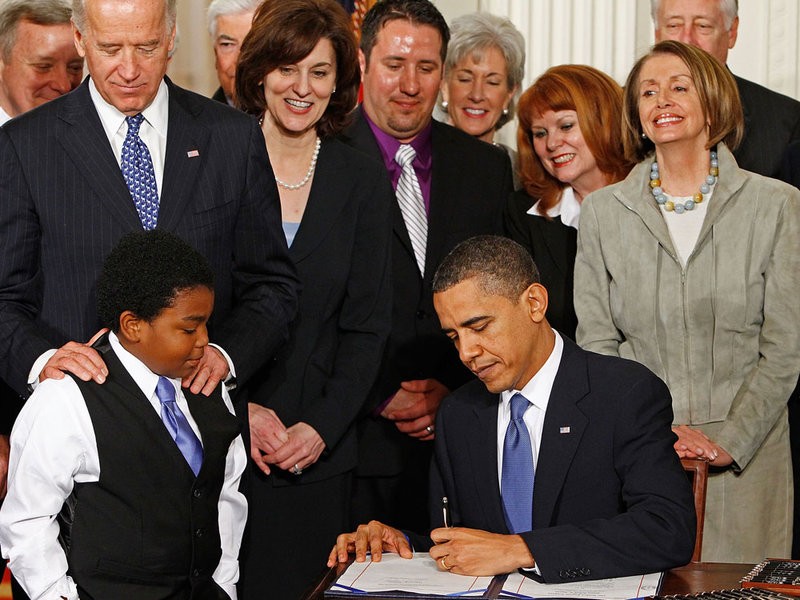Put ‘Medicare For All’ in your Pocket for Now

People have short memories of the painstaking process to bring about the Affordable Care Act.
For disclosure’s sake, I must tell to you that I like anything that builds on the premise that health care is a right, and not a privilege.
On the other hand, when was the last time you ran into a person 65 or older who loved his or her Medicare?
Elizabeth Warren’s meticulous plan is your basic single payer system that cuts out the middleman: health insurance companies. It aims to streamline our extremely chaotic health care system that costs more and delivers less than any other western country, most of which utilize single payer.
Significantly, Warren’s plan would replace private and employer-based insurance.
It is true that most everybody has countless complaints about their health insurance. Warren and the others are counting on that to take the big step. But progress comes in many shapes and forms, like, say, giving people the option to buy into Medicare and having the power to force pharmaceutical companies to lower their prices.
People like options and certainty. They don’t support putting a hammer to private insurance and having their company plans nullified. Yes, the end result of Medicare for all would ultimately lower healthcare costs and improve care.
But how do you message such a complex proposal (Warren’s plan runs 9300 words)? Especially when Trump and the Republicans continuously sabotage some of the more popular provisions of of the ACA…negative ads that can write themselves.
There are some short memories out there. It was only nine years ago when Democrats last transformed what amounts to 18% of our total economy. Passing it was a near miracle and implementing it cost us the 2014 midterm elections (we got paid back in 2018).

Passing “Obamacare”
The Affordable Care Act (ACA) began as a campaign promise by the winner of the 2008 presidential election. But instead of keeping it “in house” like the Clinton administration, President Barack Obama challenged Congress to come up with healthcare reform bill.
At the center of the deliberations was the Senate Finance Committee, led by chairman Max Baucus (D-MT), which held a series of 31 meetings with members from both parties and leaders of the healthcare industry such as big pharma, insurance companies, HMO’s and hospitals.
By earning the support of healthcare stakeholders as well as the American Medical Association and AARP, Baucus chose the path of least resistance. It wasn’t “revolutionary,” but it consequently shrank the ranks of the uninsured and prohibited denying health insurance to those with preexisting conditions. As VP Biden said, it was “a BFD.”
The Elusive 60th Vote
With Senate Republican leaders threatening to filibuster based on the individual mandate provision (at one time, a conservative principle), Senate Democrats needed 60 votes for passage. Then, Senator Ted Kennedy died and was replaced by a Republican, Scott Brown, in a Massachusetts special election. The Democrats’ ranks were pared to 59.
Lacking a super majority, Democrats used a legislative process called budget reconciliation, allowed for certain tax and spending bills, to pass the ACA on a simple majority vote. The House of Representative then passed the Senate bill by a 219-212 vote. Thirty-four Democrats voted against it.
Can you imagine the legislative quagmire in store for a truly transformative proposal such as Medicare for all?

It’s hard to keep score, but at least three leading Democratic contenders, pictured and identified above, support Medicare for all. Joe Biden and Pete Buttigieg support a more incremental approach. (Disclosure: I have yet to pick a horse in this race and it could very well be one of the two ladies in the center of the photo.)
Want To Go Big? Get Rid of Trump
Our rhetoric tends to soar when chronicling the worst of the Trump administration. We are outraged at the corruption, scorn for democracy, the lies and vulgarities, dancing with dictators and so on.
Here’s a heads-up of what four more years of Trump might bring: Replacing Ruth Bader Ginsburg with a right wing fool on the Supreme Court. The calamity of doing nothing on climate change. Immigrants used as cannon fodder. The Federal Reserve losing its independence and monetary policy running amok. A war being fought to replenish Trump’s rental income. The very real possibility of ending Obamacare.
John Gest of George Mason University gets it right:
Under Donald Trump, the Republicans have chosen to abandon the American center and its moderates. It would be utterly foolish for Democrats to make the same mistake and move the Democratic party leftward. With Trump on the ballot, any semblance of moderation will appeal to…voters in swing states.
John Gest
The 2020 presidential election is just too important. Put your dreams in your pocket.

















































































































